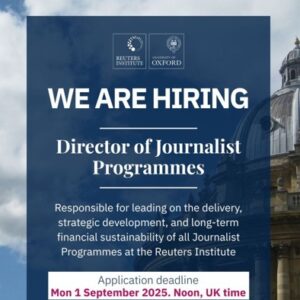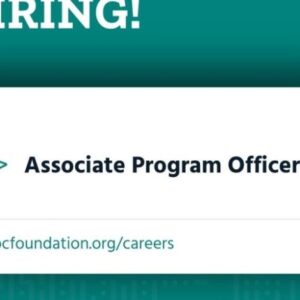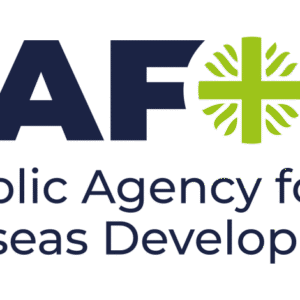
Introduction – Why This Matters More Than Ever
If you’re staring at a job listing that excites you but the “2+ years experience” line makes your heart sink, you’re not alone. In Countries like UAE, Saudi Arabia , millions of entry-level job seekers face the same dilemma — companies want experience, but how do you get it if no one will hire you in the first place?
Here’s the truth: you can land a great job with zero professional experience if you approach your application strategically. The secret lies in translating your skills, leveraging every available resource, and presenting yourself as a problem-solver — not just another applicant.
In this guide, I’ll walk you through the exact steps, tactics, and mindset shifts you need to turn “no experience” into “job offer in hand.”
1. Shift Your Mindset – Experience Isn’t Just Paid Work
One of the biggest misconceptions job seekers have is that “experience” only means full-time, paid employment.
Employers care about what you can do, not just where you’ve done it. That means your volunteer work, freelance gigs, academic projects, internships, and even personal projects can count as relevant experience.
Examples of Non-Traditional Experience You Can List:
- Volunteering – Event organization, fundraising, or community outreach
- Class projects – Research, group presentations, or design work
- Freelance work – Even if unpaid, it shows initiative
- Part-time jobs – Customer service, tutoring, retail
- Online certifications – Free or paid courses that prove your skills
According to Indeed, structuring your resume around skills rather than job titles increases your chances of getting noticed.
2. Write a Skills-Focused Resume
When you lack traditional experience, your resume should highlight capabilities over chronology.
Key Elements to Include:
- Professional Summary – A brief 2–3 sentence snapshot of your strengths and career goals.
- Skills Section – Both hard skills (e.g., Excel, data analysis) and soft skills (e.g., communication, leadership).
- Relevant Projects – Short descriptions of how you applied your skills.
- Education – Include honors, coursework, and GPA (if strong).
Sample Skills-Based Resume Layout
| Section | What to Include |
|---|---|
| Header | Name, contact info, LinkedIn |
| Professional Summary | One short paragraph summarizing skills |
| Core Skills | 6–8 bullet points of key abilities |
| Projects/Experience | 2–4 brief project descriptions |
| Education | Degree, school, graduation date |
3. Craft a Compelling Cover Letter
Your cover letter is your chance to tell your story and explain why you’re a great fit despite limited formal experience.
Cover Letter Writing Tips:
- Open with enthusiasm and mention the specific job title.
- Connect your transferable skills to the job’s requirements.
- Share a brief example of how you’ve solved a relevant problem.
- End with confidence and a call to action.
📌 Pro Tip: Even if a job listing says a cover letter is optional — write one. It can be the difference between “ignore” and “interview.”
4. Leverage Networking – The Hidden Job Market
In Canada and the USA, up to 70% of jobs are never posted publicly. Instead, they’re filled through referrals and networking.
Ways to Network Without Feeling Awkward:
- Attend industry meetups or career fairs
- Join LinkedIn groups in your field
- Reach out to alumni from your school
- Message professionals for informational interviews
A personal recommendation can sometimes bypass the “experience required” filter entirely.
5. Build Your Experience Before Applying
If you truly have no related skills yet, spend 30–60 days building them.
Fast Ways to Gain Experience:
- Take free online courses from platforms like Coursera or LinkedIn Learning
- Volunteer for a nonprofit in a relevant role
- Offer to help small businesses with social media or admin tasks
- Join student clubs or community projects
Even short-term efforts can create talking points for interviews.
6. Prepare for Behavioral Interview Questions
Employers often use behavioral questions to assess potential. You can answer effectively without formal job history by using the STAR Method (Situation, Task, Action, Result).
Example Question:
“Tell me about a time you worked as part of a team.”
Strong Answer:
“In my final year of university, I worked on a marketing project (Situation) where my role was to design a social media plan (Task). I researched trends, created content calendars, and presented them to the class (Action). We increased engagement by 40% during the test run (Result).”
7. Focus on Transferable Skills
Many entry-level jobs require universal abilities such as:
- Communication
- Time management
- Problem-solving
- Teamwork
- Adaptability
If you can show how you’ve demonstrated these in school, sports, or community work, employers will see your potential.
8. Apply Strategically
Don’t mass-apply to 100 jobs with the same resume. Instead:
- Target 5–10 companies at a time
- Customize your application for each role
- Use the company’s language from the job ad in your resume
This approach leads to higher-quality applications and more interviews.
9. The Mindset That Gets You Hired Without Experience
You need to present yourself as:
- A fast learner – Willing to be trained
- A problem solver – Eager to take initiative
- Committed – Planning to grow with the company
Hiring managers often prefer someone motivated and teachable over someone experienced but unenthusiastic.
10. Quick Comparison – Approaching Jobs With vs. Without Experience
| Factor | With Experience | No Experience but Strategic Approach |
|---|---|---|
| Resume | Work history focus | Skills & projects focus |
| Cover Letter | Highlights past roles | Emphasizes transferable skills |
| Networking | Uses industry contacts | Builds new connections via events & LinkedIn |
| Interview Strategy | Uses work examples | Uses academic/volunteer examples |
| Employer Risk | Lower | Moderate but offset by enthusiasm |
Understanding Job Market Trends in Islamic Countries
If you’re trying to apply for jobs with no experience in Islamic countries, the first thing you should do is understand the job market trends. Unlike in North America or Europe, employment opportunities in these countries are often shaped by government development plans, cultural values, and regional industries.
For example, Saudi Arabia’s Vision 2030 has created a massive push for economic diversification. While oil and gas remain dominant, there’s growing demand for talent in tourism, renewable energy, IT, education, and healthcare. This means even if you don’t have work experience, you can position yourself as a candidate with transferable skills relevant to these sectors.
In the UAE, particularly Dubai and Abu Dhabi, the focus is on technology, hospitality, logistics, and financial services. With the rise of Expo 2020 legacy projects and ongoing infrastructure development, there’s a continuous need for entry-level roles — from customer service to junior project coordination.
Qatar, fueled by preparations for major sporting events and infrastructure expansion, has a thriving market for construction support staff, administrative assistants, and marketing coordinators, many of which are open to fresh graduates.
Meanwhile, in Malaysia and Indonesia, the job markets are expanding in digital marketing, fintech, e-commerce, and education. The increasing integration of Islamic finance and Halal-certified industries also creates unique opportunities for job seekers with cultural understanding, even if they lack direct work experience.
Quick Snapshot of Entry-Level Hiring Trends
| Country | Key Growing Sectors | Hiring Potential for Freshers |
|---|---|---|
| Saudi Arabia | Tourism, Renewable Energy, IT, Healthcare | High |
| UAE | Tech, Logistics, Finance, Hospitality | High |
| Qatar | Construction, Marketing, Admin Roles | Medium–High |
| Bahrain | Banking, Customer Support, Education | Medium |
| Malaysia | Digital Marketing, E-commerce, Halal Food | High |
| Indonesia | Education, Manufacturing, Islamic Finance | High |
Key Takeaways
- Government projects in the Middle East often create new entry-level job openings.
- Sector-specific growth (e.g., Islamic finance, Halal certification) can benefit applicants with relevant cultural knowledge.
- Even without experience, short vocational courses in high-demand areas can make you stand out.
By staying informed about these market trends, you’ll know where to target your applications and how to position your skills to meet employer needs — even as a first-time job seeker.
Final Thoughts – Turning “No Experience” into Your Unique Advantage
Applying for jobs with no experience isn’t about faking it — it’s about reframing what you already have and showing employers you can deliver results.
When you show enthusiasm, prove you can learn fast, and present your transferable skills confidently, you position yourself as a low-risk, high-potential hire.
Your first “yes” will be the hardest, but once you land that entry-level role, the rest of your career opens up.
Frequently Asked Questions (FAQs)
1. Can I really get hired with no work experience?
Yes. Employers often hire candidates with no formal experience if they demonstrate transferable skills, strong motivation, and a willingness to learn. Volunteering, internships, and academic projects can all count as relevant experience.
2. What should I put on my resume if I have no job history?
Focus on a skills-based format. Include education, volunteer work, relevant projects, certifications, and personal achievements that relate to the job you’re applying for.
3. How important is networking if I have no experience?
Very important. In Canada and the USA, many jobs are filled through referrals. Networking can help bypass strict “experience required” filters and get your resume in front of decision-makers.
4. Should I apply for jobs that list experience as a requirement?
Yes, if you meet most of the other qualifications. Requirements are often flexible, and employers may hire an enthusiastic learner over a less motivated but experienced candidate.
5. How can I make my cover letter stand out without experience?
Share a brief, compelling story that shows your problem-solving ability or dedication. Relate your transferable skills to the specific needs of the company.
6. Are online certifications worth including on my resume?
Absolutely. Completing reputable online courses (e.g., Coursera, LinkedIn Learning) shows initiative and helps prove you have the technical or professional skills required for the job.






